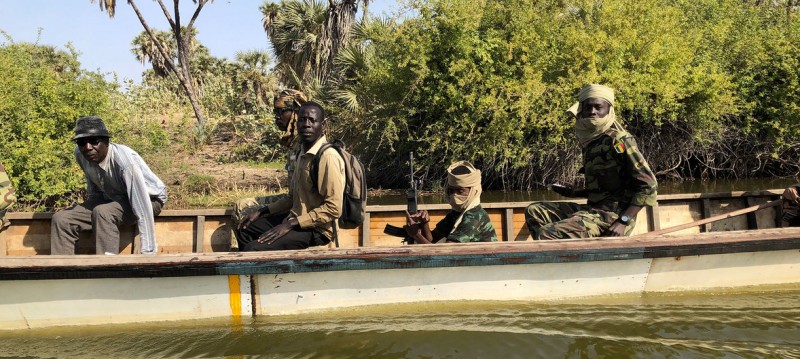Cameroonian soldiers patrol parts of Lake Chad that have been effected by terrorist activity. (February 2019) Environmental degradation enables armed groups to extend their influence and manipulate resources to their advantage, the UN chief told the Security Council on Thursday, highlighting that conflict-prevention initiatives need to factor in climate risks. In Iraq and Syria, terrorist group Daesh, also known as ISIL, has exploited water shortages and taken control of water infrastructure to impose its will on communities, while in Somalia charcoal production provides a source of income for Al-Shaab, UN Secretary-General António Guterres explained during a debate on Security, in the Context of Terrorism and Climate Change. “Climate change is not the source of all ills, but it has a multiplier effect and is an aggravating factor for instability, conflict and terrorism”, he said, urging the 15 Council members to address these challenges in an “integrated matter” to create a “virtuous a circle of peace, resilience and sustainable development”. Mr. Guterres reminded that currently the regions that are most vulnerable to climate change, also largely suffer from insecurity, poverty, weak governance and the scourge of terrorism. “Climate impacts compound conflicts and exacerbate fragility…When the loss of livelihoods leaves populations in despair, the promises of protection, income and justice – behind which terrorists sometimes hide their true designs – become more attractive”, he emphasised. For example, he added, in the Lake Chad basin region, Boko Haram has been able to gain new recruits, particularly from local communities disillusioned by a lack of economic opportunity and access to essential resources. Recurrent drought and the resulting competition over resources has led to conflict in Somalia in recent decades. Mr. Guterres highlighted the importance of his recently proposed “New Agenda of Peace” included in the landmark report Our Common Agenda, which presents a multidimensional vision of global security. Considering this, the Secretary-General outlined five areas where he believes the council must take action. According to the UN chief, since “conflicts and terrorism do not take place in a vacuum” but are the result of “deep fractures” such as poverty, human rights violations and poor governance, to build lasting peace is necessary to address inequality. He urged council members to protect the most vulnerable people and communities, support investment in human development, promote inclusive governance with the participation of all communities including environmental defenders, and amplify the voices of women and young people. Citing the recent UN COP26 Climate Conference, Mr. Guterres reminded that developed countries must keep their promise to provide at least 100 billion per year to developing countries for climate action. He warned, however, that the costs of adaptation and resilience will be increasing in the next decade, so the financing mechanisms must meet the growing needs and be accessible to the most affected populations. The UN chief underscored that understanding and anticipating the cascading effects of climate change strengthens all efforts to bolster peace and security. “We also need to build on existing expertise in disaster risk reduction and integrate climate risk into all economic and financial decisions”, he said. Mr. Guterres urged countries to make the best use of on-the-ground expertise, while drawing on the political, technical and financial capacities of regional and international actors. “The Regional strategy for the stabilization, recovery and resilience of the Boko Haram-affected areas of the Lake Chad basin region, is a good example. Jointly developed by the African Union, the Lake Chad Basin Commission, the United Nations and other partners, the strategy integrates humanitarian action, security, development and climate resilience”, he explained. Finally, the UN chief warned that African peace missions in places like the Sahel and Somalia often have limited room to maneuver and are faced with great funding uncertainties. He asked the Council to provide predictable funding “guaranteed by assessed contributions”. “I urge you to consider this matter again as soon as possible”, he told ambassadors.
Five points of action
1. Focus on prevention and address the root causes of insecurity
2. Increase investment in adaptation and resilience.
3. Better analysis and early-warning systems.
4. Development of partnerships and initiatives linking local, regional, and national approaches.
5. Sustained investment.
The World Organization for Development has been endowed with consultative status with the UN ECOSOC since 2014. The World Organization for Development, which has consultative status wich the UN ECOSOC, develops and implements Global Initiatives to achieve the UN Sustainable Development Goals.




Comments are closed.